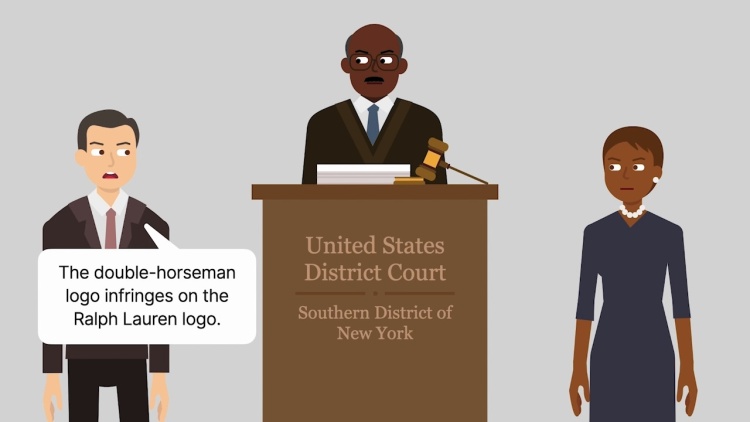PRL USA Holdings, Inc. v. United States Polo Association, Inc.
United States Court of Appeals for the Second Circuit
520 F.3d 109 (2008)

- Written by Sean Carroll, JD
Facts
PRL USA Holdings, Inc. (Ralph Lauren) (plaintiff) held a trademark for its clothing logo, which consisted of a polo player with a raised mallet. The United States Polo Association (USPA) (defendant), a different clothing company, used four similar logos on its clothing. Ralph Lauren brought suit against USPA for trademark infringement in the United States District Court for the Southern District of New York. USPA claimed that Ralph Lauren was estopped from asserting trademark infringement because Ralph Lauren had acquiesced to USPA’s use of its logos. USPA introduced the testimony of Merle Jenkins, a USPA employee, to establish that Ralph Lauren had consented during settlement negotiations to USPA using a certain version of the logo, and that this version was not offensive to Ralph Lauren. USPA claimed that, after being told this particular logo was not offensive to Ralph Lauren, USPA had spent significant money to roll out the logo on its clothing. Ralph Lauren objected to this testimony on the ground that it was part of a settlement negotiation and thus prohibited under Federal Rule of Evidence (FRE) 408. The district court overruled Ralph Lauren’s objection and found that three of USPA’s four logos did not infringe upon Ralph Lauren’s trademark. Ralph Lauren appealed.
Rule of Law
Issue
Holding and Reasoning (Leval, J.)
What to do next…
Here's why 899,000 law students have relied on our case briefs:
- Written by law professors and practitioners, not other law students. 47,000 briefs, keyed to 994 casebooks. Top-notch customer support.
- The right amount of information, includes the facts, issues, rule of law, holding and reasoning, and any concurrences and dissents.
- Access in your classes, works on your mobile and tablet. Massive library of related video lessons and high quality multiple-choice questions.
- Easy to use, uniform format for every case brief. Written in plain English, not in legalese. Our briefs summarize and simplify; they don’t just repeat the court’s language.





